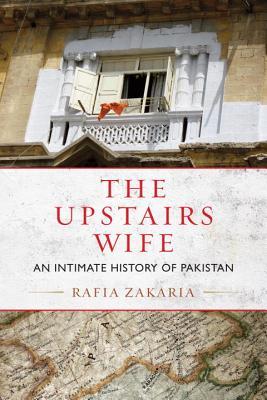When I brought this book, I was expecting something along the lines of Fatima Merissini. This book is not that.(Phot
What this book is a chronicle of a family life in Parkisten after Partition, Zakaria’s family moved to Pakistan because of the anti-Muslim climate of India. Zakaria’s family history, in particular, that of her childless aunt whose husband takes a second wife. The personal conflict in the family is also shown in contrast to the unfolding political and societal drama, as Pakistan’s government tightens control over women.
In many ways, Zakaria’s story is like Atwood’s Handmaid’s Tale, and considering that Atwood’s novel doe draw on real events and rules that have been applied to women, this should not come as that much of a surprise. After all haven’t you seen the photo of a bunch of old white guys deciding that maternity care is not essential for health? Haven’t you read about the anti-abortion bill that was signed by a white man surrounded by white men? Haven’t you heard of the Saudi Girls council with just men? The Russian loosening of spousal abuse laws? How about the women leaving Saudi Arabia because of the constraining laws? The various Texas bills and laws concerning abortion? The lawmaker who referred to women as a host for the baby? The fact that in many countries young girls can legally be married to older men?
So yeah, The Handmaid’s Tale is real, and this book really proves it.
Unlike Atwood’s fact based dystopia, Zakaria memoir showcases the erosion of rights and standing as a woman actually becomes a leader of the country. The trials and tribulations that the women endure might not be common to all at least on the face, but at the root? At the root, it is.
But the memoir isn’t just concerned with Pakistani politics, but also with the effect of international politics on the ordinary Pakistani citizen. (I for one wish I had read this prior to reading A Golden Age). It is non-linear, so it will put some people off, but if you give yourself over to the voice, it is like you are having a cup of tea with the author.
(Photo Source Goodreads)
In many ways, Zakaria’s story is like Atwood’s Handmaid’s Tale, and considering that Atwood’s novel doe draw on real events and rules that have been applied to women, this should not come as that much of a surprise. After all haven’t you seen the photo of a bunch of old white guys deciding that maternity care is not essential for health? Haven’t you read about the anti-abortion bill that was signed by a white man surrounded by white men? Haven’t you heard of the Saudi Girls council with just men? The Russian loosening of spousal abuse laws? How about the women leaving Saudi Arabia because of the constraining laws? The various Texas bills and laws concerning abortion? The lawmaker who referred to women as a host for the baby? The fact that in many countries young girls can legally be married to older men?
So yeah, The Handmaid’s Tale is real, and this book really proves it.
Unlike Atwood’s fact based dystopia, Zakaria memoir showcases the erosion of rights and standing as a woman actually becomes a leader of the country. The trials and tribulations that the women endure might not be common to all at least on the face, but at the root? At the root, it is.
But the memoir isn’t just concerned with Pakistani politics, but also with the effect of international politics on the ordinary Pakistani citizen. (I for one wish I had read this prior to reading A Golden Age). It is non-linear, so it will put some people off, but if you give yourself over to the voice, it is like you are having a cup of tea with the author.

Comments
Post a Comment